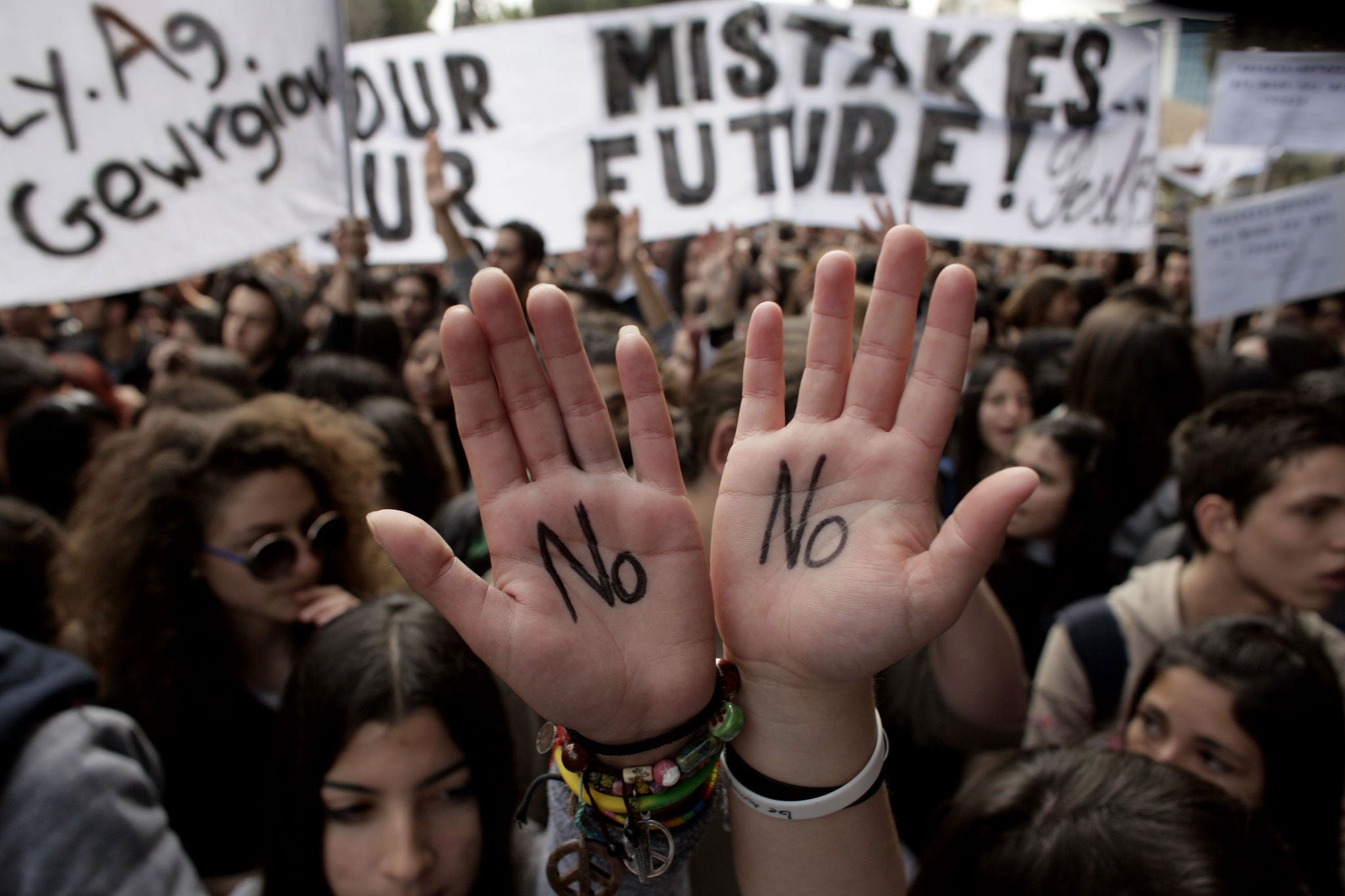Cyprus puts the whole project of austerity across Europe at risk
Taken overall, the pot that banks can lend from will be much smaller now


Reason says that events on a Mediterranean island with a population of a little more than one million people should not have the power to change public attitudes right across Europe.
But money is cowardly. It does not listen to reason but runs to whatever it sees as safety whenever it is frightened. So what has happened during the past week in Cyprus will heighten the fears of depositors in banks that are not squeaky-clean solid. That is pretty clear. What remains to be seen is whether attitudes shift, not only towards banking probity but also more generally towards fiscal and monetary responsibility.
Cyprus has proved an example of a familiar feature in the world of finance. This is that outcomes that seem inevitable take far longer to come to a head than you would expect, but when they do, everything happens more suddenly. So Cyprus has been the next candidate for a bailout for months, yet the outcome – that some depositors in some banks might lose up to half their money – was unthinkable. Now it has happened.
Of course Cyprus is just a progression. Five years ago many retirees in Scotland owned shares in the two Scottish banks, relying on the dividends for their income. It was the prudent, sensible thing to do. Those savings have been wiped out, but no one cares much about that, for shareholders “knew they were taking a risk”.
So, should depositors in Cypriot banks have known they were taking a risk? And what about the risk for depositors in Croatian, Spanish and Italian banks?
But even if the progression is simply incremental, a line has been crossed, and as a candid, if inexperienced, Dutch Finance Minister put it, this may become a template for future country rescues.
Now think through the consequences. As yet there has been no substantial withdrawal of funds from banks in southern Europe. That should be a relief. But over time people will make sure that they do not keep more than €100,000 in any single banking group. Many do already. While for most individuals this will not be a problem – unless they happen just to have sold a property – it is a huge problem for business. Europe is moving towards a system where people who do have a lot of spare cash will place it in some form of safe instrument, government bonds perhaps, rather than give it to a bank. A euro invested by an Italian grandparent in German bunds is a euro not available to be lent on by a regional bank to a small or medium-sized enterprise in Umbria.
To say all this is not to be apocalyptic. Cyprus is indeed a special case. The soundest banks in the soundest countries will benefit from what has happened; the weakest banks in the weakest countries will suffer. But taken overall, the pot that banks can lend will be smaller than it otherwise would have been and that will be more of a drag on the economy. This is not an explicit policy. No eurozone minister has declared: “Let’s make people frightened of holding large deposits with banks so the banks will have to cut their lending.” It is simply an inevitable human response.
The financial response is easy to predict; the political reaction harder. But the clash between the anger in the South and the frustration in the North is pretty unpleasant. I fear it will become more unpleasant in the months ahead – and that will make it even harder to sustain fiscal austerity across a battered region.
Building the future, one BRIC at a time
It says something for the power of an acronym that the BRICs should be having a summit. Yet the four largest emerging economies, Brazil, Russia, India and China, have been happy enough to adopt the name coined by Goldman Sachs for what is now their fifth annual economic summit, this time in Durban. For the moment, however, it is basically a talking shop. That is partly because China dominates, for it is quite a bit larger than the others put together. But also because the various economies are quite different, unlike the G7, where broadly similar economies benefit from improving trade and capital flows between themselves.
There is one concrete proposal –founding a BRICs’ development bank. But for the rest, the talk is mostly vague stuff about greater co-operation in monetary affairs, reducing the dollar’s role in international trade and all that. Eventually that will happen, but China and India will have to let their currencies become freely convertible. The transfer of power from the dollar will be slow, even if, according to new OECD predictions, China’s economy overtakes the US in 2016, a full decade ahead of Goldman Sachs’s forecast.
Join our commenting forum
Join thought-provoking conversations, follow other Independent readers and see their replies
Comments
Bookmark popover
Removed from bookmarks